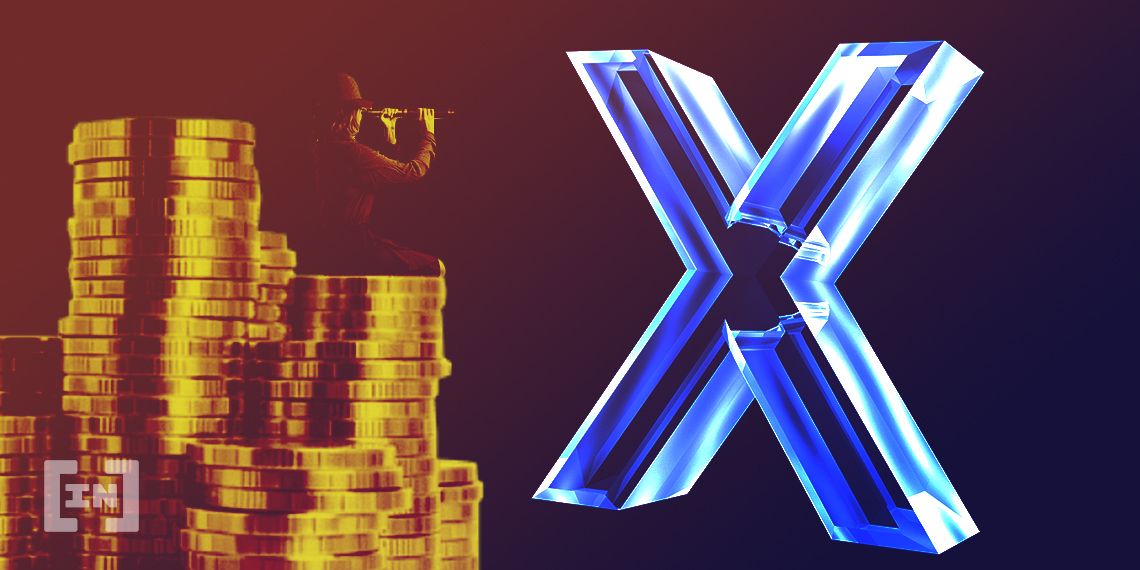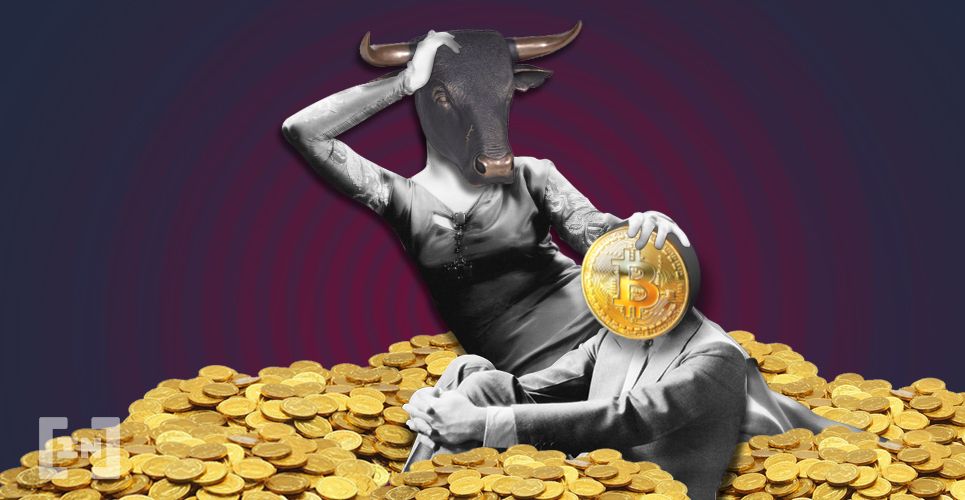Futures contracts are literally agreements to buy or sell an asset on a future date and for a fixed price. This acts as a means for businesses and industry to protect themselves from future price fluctuations, but these contracts can also be traded by speculators.
If you’ve been paying attention to cryptocurrency for a while you have probably heard the term “futures” thrown around more than once. Most notably news of futures offerings from CME, Cboe and Bakkt all have made waves as investors get excited at the prospect of new institutional money coming into the market.
But just what are futures anyway, and why do people care so much? Furthermore, is there a way for a regular retail investor to get involved? That’s why BeInCrypto has created this guide to explain what they are, why you should care, and where to trade bitcoin futures.

How Futures Contracts Work
A futures contract is simply an agreement between two parties to buy or sell an asset at a fixed price at some point in the future. Let’s walk through a simple example:
The price of oil is $100 per barrel. Trader A thinks that the price is going to rise in the next three months. Trader B is concerned with just the opposite, that the price is going to go down. Therefore they create a contract and agree that in 3 months, Trader A will buy 500 barrels of oil from Trader B at the fixed price of $100. So no matter what the market actually does, Trader A will purchase the oil at the agreed-upon price. If Trader A is correct, and the price of oil rises, then in 3 months he will buy the oil and be able to make a profit because he can turn around and sell it for the current market prices. If Trader A is wrong though, and prices drop significantly, he will still have to buy the oil at the fixed price, but now is stuck with an asset that is worth less than what he paid.
The same logic applies to the seller, Trader B, but in reverse. If the price rises, Trader B loses out on profit because they still have to sell the oil at $100 per barrel. However, if the price should drop then the seller has effectively protected their business against losses.
Enter the Speculators
This is the essence of why futures contracts exist. They shield traders from volatility and unforeseen news affecting the market. They are frequently used in major industries to have a degree of certainty over what assets will cost in the coming months. However, the contracts themselves can also be bought and sold, so this then creates a market for speculators. These contracts actually become more or less valuable depending on how the market has changed since their creation and how much time is left until they expire.

Imagine the contract to buy oil we just mentioned, with a fixed price of $100/barrel. When the three months is up, the transaction that was agreed upon has to occur. But if there’s only a week left until that date, and the market price has risen to $500/barrel (extreme, but we’re making a point), then the contract itself effectively now stands to make its holder $200,000 profit. 500 barrels at $100 will only cost $50,000, but those barrels are now worth $250,000. If Trader A doesn’t want to deal with flipping the barrels, he can simply trade the contract to someone else who will, as long as it hasn’t yet expired. Because the value of the contract is so high, Trader A will still be able to turn a pretty handsome profit.
Futures on Bitcoin are really no different. If you think the price of Bitcoin is going to go up, you can, of course, buy some and hodl it, then sell it yourself later if you are correct. However, futures contracts offer ways for investors to make money off of movements in Bitcoin’s price without having to ever hold any Bitcoin directly. This can have a few benefits. One is that Bitcoin trading is currently unregulated or poorly regulated in many markets, but futures trading has much clearer rules surrounding it. Investors have almost nothing to fear that anything will change in the futures regulations in the next five years, but that is much less clear for Bitcoin. On the topic of regulation, futures also give investors the ability to make money off of Bitcoin in regions where it is outright banned. After all, they aren’t buying and selling Bitcoin, just a contract. This again can mean that money can be made off of the market without nearly as much risk that is involved in trading it directly.

The Importance of Leverage
One final benefit that can come from futures is leverage. Leverage is when an exchange allows you to put up only partial capital on an investment, with them providing the rest. So say you want to trade $100 worth of Bitcoin, but only have $10. If the exchange offers leverage, they will supply the money for the $100 transaction. You would now have 10x the return on the gains you make, but also notably higher risk. If the market goes the wrong way, you can much more quickly lose your capital (in this case $10) than if you had simply purchased that value in Bitcoin directly.
Think of it like this: If you purchased $10 worth of Bitcoin, and the market dropped so that now that Bitcoin is worth only $9, then you’ve only really lost a dollar. Furthermore, you still have the Bitcoin, and it will plausibly go back up again at some point in the future. Now suppose that same $10 is used as collateral for a 10x leverage position. If the market drops by the same amount we just described, 10%, then your $100 position is now worth only $90, which will trigger the exchange to close your order and take your capital to cover its losses. Hence the same bad day can either lead to a temporary dip in the value of your asset or wipe out your entire account. It is in this way that leverage users can get “rekt” from relatively small moves in the market. The reason all of this is important is that usually, exchanges will allow for notably higher leverage on futures contracts than they will for direct market trading, making it a much more attractive asset for high-risk traders. Leverage is also the means by which people can short Bitcoin futures, as exchanges will “lend out” the contracts with the understanding that they must be paid back. If the price of Bitcoin drops, the trader can fulfill the payback for less than they borrowed it for, and hence pocket the difference.

Top Bitcoin Futures Exchanges
CME Group
The Chicago Mercantile Exchange, or CME Group Inc., is the world’s largest financial derivatives exchange. It is a trusted institutional platform and has recently taken to offering Btc Future’s contracts. Obviously this is not for casual investors but instead acts as a means for professional traders to access Bitcoin through an established entity. For those looking for a trusted platform to access Bitcoin contracts, CME Bitcoin futures could be the ideal avenue. For a time, CBOE also offered Bitcoin futures options but has since ceased in this endeavour.
Bakkt
Bakkt is owned by the Intercontinental Exchange (ICE), which happens to also own the New York Stock Exchange. Founded in 2018, this company was created specifically to offer Bitcoin futures options. It has partnered with major companies like Microsoft and Starbucks and seeks to be the premier digital currencies platform in the coming years. Newer than CME, but still run by an established trading leader. One benefit of Bakkt is that it is focused solely on digital assets, making it a more focused platform for Bitcoin futures.

Binance
Binance is, of course, one of the world’s biggest cryptocurrency exchanges, but they also offer a platform to trade futures. This allows users to get involved on an actual cryptocurrency-focused exchange instead of an institutional platform, which may be preferential to some. Signing up for such an account will still come with some red tape, as these exchanges employ Know-Your-Customer policies, but it shouldn’t be much different than any major cryptocurrency marketplace currently available.

The benefits of using an actual cryptocurrency exchange for futures trading include the fact that they will offer more than just Bitcoin contracts. All the exchanges mentioned provide a variety of products that include other major coins such as Ethereum, Litecoin, Bitcoin Cash, XRP and more. This gives users more flexibility and can allow for more complex strategies. Another major benefit that we already touched on is the ability to get started with notably less money than if choosing one of the institutional offerings. You don’t have to basically already be an established wealthy trader just to open an account with them. This ties into cryptocurrency’s vision of providing financial tools to the common people, not just Wall Street.

The biggest downside, however, is the fact that these exchanges themselves and their futures trading is not regulated, generally, in most places. There is again some uncertainty here as to how the coming years will shape policies. For example, just recently Binance closed its doors to US customers. Admittedly it quickly opened a new, US-centric branch, but the point is that there’s still a chance rules will change on these platforms at any time. Whereas Bakkt and CME already exist within a legal framework which likely won’t change much, the same cannot be said for these new, somewhat experimental businesses.
Conclusion
Now that we’ve covered what bitcoin futures contracts are and where to access them, it is really up to each trader to decide if it is a financial vehicle they are interested in. For some, the benefits may not outweigh the downsides, and some people would greatly prefer having an asset than having a contract tied to an asset. Still, there are many who would only ever want exposure to cryptocurrency through futures, and arguably their contributions still help to stimulate the market and spread interest. Whether you want them or not, futures based on decentralized assets are probably only going to grow in popularity as the market matures. Even if they don’t trade them, users should be informed as to how this type of product works and how it is changing the face of the crypto markets moving forward.
Frequently asked questions
What are Bitcoin futures?
How do Bitcoin futures work?
What are the advantages of trading Bitcoin futures?
Trusted
Disclaimer
In line with the Trust Project guidelines, the educational content on this website is offered in good faith and for general information purposes only. BeInCrypto prioritizes providing high-quality information, taking the time to research and create informative content for readers. While partners may reward the company with commissions for placements in articles, these commissions do not influence the unbiased, honest, and helpful content creation process. Any action taken by the reader based on this information is strictly at their own risk. Please note that our Terms and Conditions, Privacy Policy, and Disclaimers have been updated.




